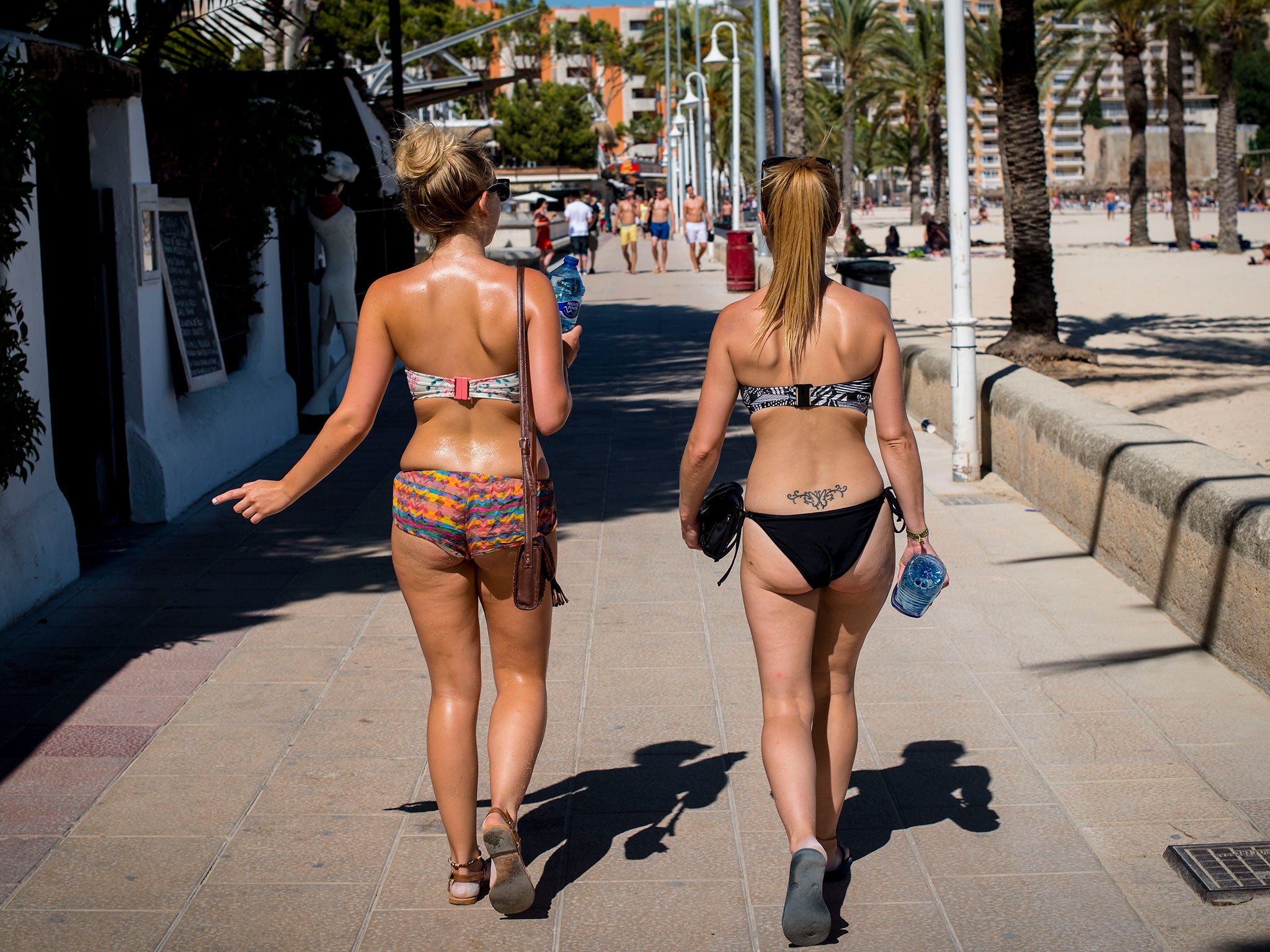FCO issues advice on local customs for hapless Brits abroad

Your support helps us to tell the story
From reproductive rights to climate change to Big Tech, The Independent is on the ground when the story is developing. Whether it's investigating the financials of Elon Musk's pro-Trump PAC or producing our latest documentary, 'The A Word', which shines a light on the American women fighting for reproductive rights, we know how important it is to parse out the facts from the messaging.
At such a critical moment in US history, we need reporters on the ground. Your donation allows us to keep sending journalists to speak to both sides of the story.
The Independent is trusted by Americans across the entire political spectrum. And unlike many other quality news outlets, we choose not to lock Americans out of our reporting and analysis with paywalls. We believe quality journalism should be available to everyone, paid for by those who can afford it.
Your support makes all the difference.The stereotype attached to Brits abroad has long been that of a beer-swilling, sunburnt hoodlum, with little respect – or even knowledge – of the ways of the places they visit.
But now, in an attempt to help British nationals be better prepared for their trips overseas, the Foreign and Commonwealth Office (FCO) is encouraging those travelling to familiarise themselves with the surprising laws and customs specific to certain regions.
The FCO claims that although 70 per cent of Brits feel they would have a better trip if they researched the local legislation and ways of life before they set off, less than half actually do so. For places they have already been, only 40 per cent of people going abroad said they would check to see if any new laws had been introduced since their last visit.
Just this year a number new rules that may catch foreigners out, such as a $500 fine for swearing in some parts of Australia, and a ban on e-cigarettes being brought into the United Arab Emirates.
But there are also long-standing laws and customs which could easily land Brits in a spot of bother.
For example, it is an offence to drive a dirty car in Russia or Belarus, honk a car horn outside a hospital in Cyprus, drink or even just possess alcohol in the UAE, wear camouflaged clothing in either Jamaica or Barbados, or commit indecent behaviour (such as mooning, says the FCO) in Greece.
The FCO even highlights the case of two British tourists who were arrested for swimming in the moat of the Imperial Palace in Tokyo. While it may appear as “a bit of harmless fun”, says the Office, “their actions were the equivalent of attempting to break into Buckingham Palace”.
And while not everything pointed out by the FCO may be against the law, much of it could still put tourists on the wrong side of the locals.
In Thailand, the head is sacred and so should never be touched by the hand, while in Mallorca – a true favourite for British tourists – leaving the beach while still in swimwear is frowned upon.
Taking photographs of people in the UAE without their permission should be also be avoided, as should wearing shoes inside the homes of Japanese people.
“It’s easy to throw caution to the wind when on holiday but it’s important to be aware of the local laws and customs before you set off,” said FCO Minister Mark Simmonds. “We want people to enjoy their holidays so we encourage them to be prepared. Laws and customs vary widely from country to country and visitors should respect them to avoid causing offence or even being arrested. Spending five minutes reading our travel advice may save travellers a lot of time in the long run.”
Earlier this month, German tabloid Bild published a controversial article, entitled “Bild explains the English Patients [of Mallorca]”, which described the so-called “ailments” that English tourists suffer when abroad, such as “vodka cough”, “underwear amnesia” and “Welsh wondering hands”.
Join our commenting forum
Join thought-provoking conversations, follow other Independent readers and see their replies
Comments